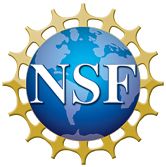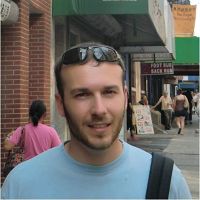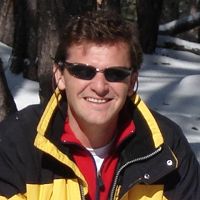van der Velde et al., 2015
Consequences of mixing assumptions for time-variable travel time distributions
van der Velde Y., Heidbüchel I., Lyon S.W., Nyberg L., Rodhe A., Bishop K. and Troch P.A. (2015)
Hydrological Processes 29(16): 3460–3474
-
Catalina-Jemez, GRAD STUDENT
-
Catalina-Jemez, INVESTIGATOR
Abstract
The current generation of catchment travel time distribution (TTD) research, integrating nearly three decades of work since publication of Water’s Journey from Rain to Stream, seeks to represent the full distribution in catchment travel times and its temporal variability. Here, we compare conceptualizations of increasing complexity with regards to mixing of water storages and evaluate how these assumptions influence time-variable TTD estimates for two catchments with contrasting climates: the Gårdsjön catchment in Sweden and the Marshall Gulch catchment in Arizona, USA. Our results highlight that, as long as catchment TTDs cannot be measured directly but need to be inferred from input-output signals of catchments, the inferred catchment TTDs depend strongly on the underlying assumptions of mixing within a catchment. Furthermore, we found that the conceptualization of the evapotranspiration flux strongly influences the inferred travel times of stream discharge. For the wet and forested Gårdsjön catchment in Sweden, we inferred that evapotranspiration most likely resembles a completely mixed sample of the water stored in the catchment; however, for the drier Marshall Gulch catchment in Arizona, evapotranspiration predominantly contained the younger water stored in the catchment. For the Marshall Gulch catchment, this higher probability for young water in evapotranspiration resulted in older water in the stream compared to travel times inferred with assumptions of complete mixing. New observations that focus on the TTD of the evapotranspiration flux and the actual travel time of water through a catchment are necessary to improve identification of mixing and consequently travel times of stream water.
Citation
van der Velde Y., Heidbüchel I., Lyon S.W., Nyberg L., Rodhe A., Bishop K. and Troch P.A. (2015): Consequences of mixing assumptions for time-variable travel time distributions. Hydrological Processes 29(16): 3460–3474. DOI: 10.1002/hyp.10372
 This Paper/Book acknowledges NSF CZO grant support.
This Paper/Book acknowledges NSF CZO grant support.
Explore Further


